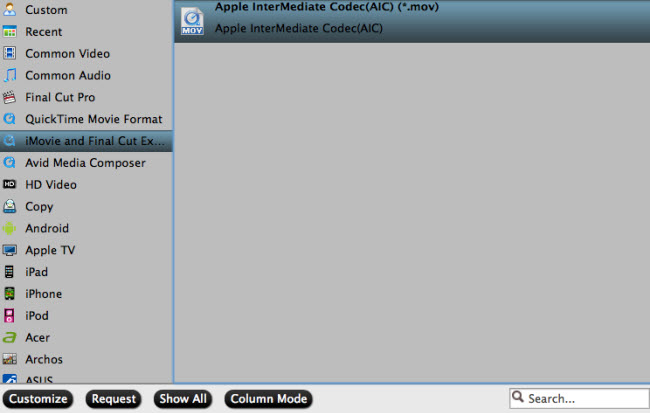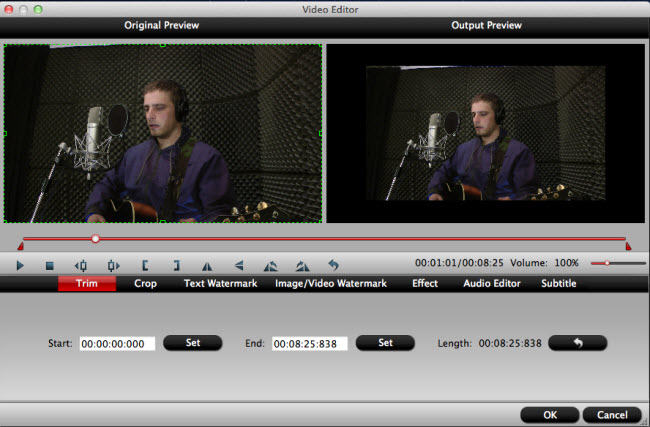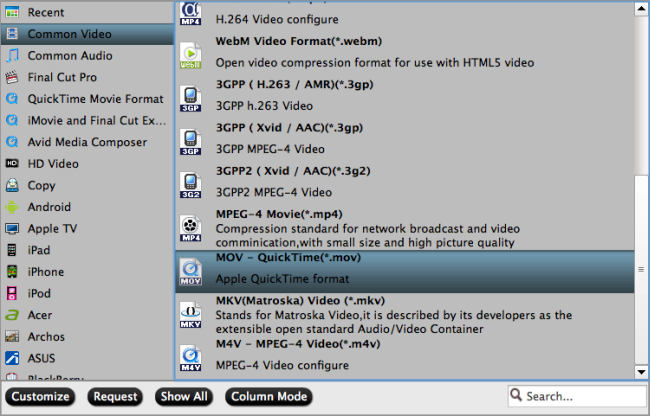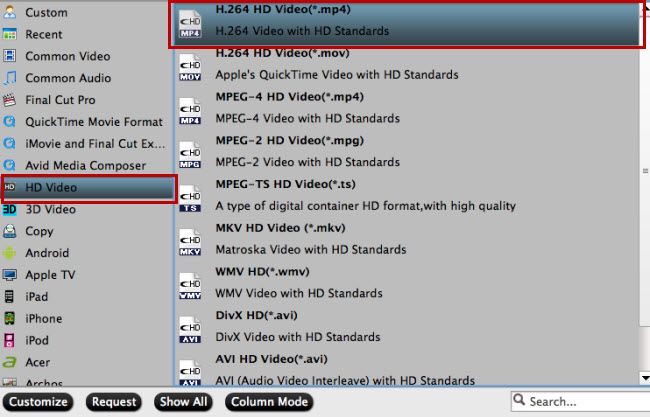The new Xiaomi Yi 4K action camera is main designed for photographers and travelers. The camera uses the world's leading 1400 mAh lithium-ion battery by Ampetrex Technology (iPhone supplier) with a high voltage of 4.4 V. Thus, the Yi 4K action camera is able to operate up to 8 hours in standby mode and up to 120 minutes when shooting the high-quality 4K / 30 fps video without WiFi and with the LCD screen turned off. After the shooting stage, you may wish to play the Xiaomi Yi 4K video on computer with media player software, transfer to view on smartphone, tablets or stream to large screen TV via media servers. For editors, you may want to do either some basic or professional post editing work of the Xiaomi Yi 4K video with either professional or prosumer editing software. The following article will share you some beneficial tips for better playing and editing Xiaomi Yi 4K video.
Recording specification for Xiaomi Yi 4K Video
Video Resolution & Frame Rate |
4K - (3840 x 2160) - 30 / 25 fps (60 mbps) |
Video Format |
.mp4 format, .H.264 |
Transcode and compress Xiaomi Yi 4K video for better playing/editing
The 4K H.264 video recorded by Xiaomi Yi is a good delivery codec but not a good editing format since it is very CPU intensive when decoding. Therefore, you won't get a smooth editing workflow when you try to directly work the Xiaomi Yi 4K video with professional or prosumer editing software such as Windows Movie Maker, iMovie, Sony Vegas Pro, Final Cut Pro X, Adobe Premiere Pro CC, Davinci Resolve, Avid Media Composer, etc. To get a high quality and high performance workflow, it would be much ideal for you to transcode the H.264 to your editing software favorable editing codec.
Although the H.264 codec used by Xiaomi Yi camera is widely supported by most media player software or portable devices, however, you may be disappointed to find most processor on your computer or portable devices lacks the ability to handle 4K resolution video, in addition, the 4K video will take a lot of space of your computer hard drive or device internal memory. To get a smooth playback experience, it would be a good option for you to compress 4K to 1080p with smaller file resolution.
Here, you can easily transcode and compress Xiaomi Yi 4K video to 1080p by downloading Pavtube Video Converter for Mac. The program has perfect importing support for the 4K H.264 MP4 video shot with Xiaomi Yi camera. Thanks to its batch conversion mode, you can load multiple video into the program at one time for conversion to save your precious time. With the program, you can not only transcode Xiaomi Yi 4K video to NLE editing software compatible file formats or specially optimized editing codec such as Apple Prores, Apple Intermediate Codec, DNxHD, MPEG-2, etc, but also compressing 4K to 1080p fix the video choppy, buggy or stuttering issue when playing or editing 4K video on editing software or devices/applications.
For Windows users, please go to download Pavtube Video Converter to perform the conversion on macOS High Sierra, macOS Sierra, Mac OS X El Capitan, Mac OS X Yosemite, Mac OS X Mavericks, etc.
How to Transcode and Compress Xiaomi Yi 4K Video to 1080p for Better Playing and Editing?
Step 1:Load Xiaomi YI 4K Video.
Download the free trial version of the program. Launch it on your computer. Click "File" menu and select "Add Video/Audio" or click the "Add Video" button on the top tool bar to import Load Xiaomi YI 4K video files into the program.
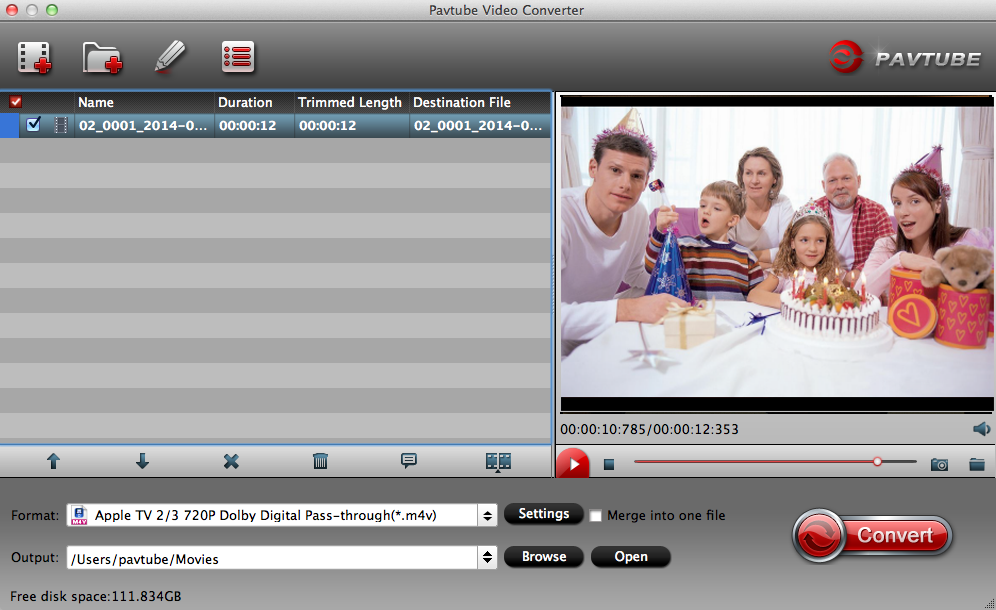
Step 2. Define the output file format.
Click the "Format" bar, from its drop down list, select one of the popular file format such as "H.264 HD Video(*.mp4)" under "HD Video" main category that's supported by most devices and applications.
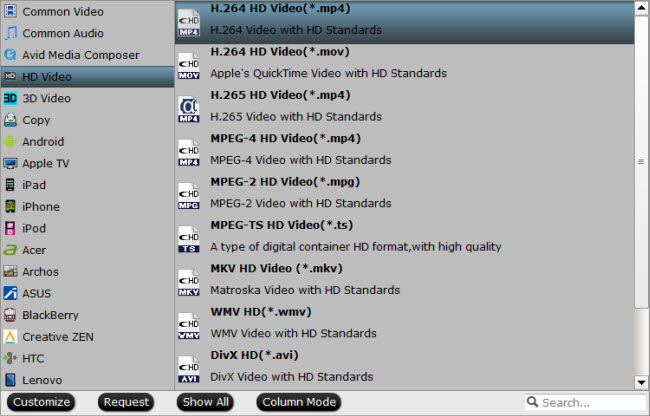
For people try to load the Xiaomi Yi 4K video into video editing software, you can try to direct output video editing software preset profile format such as "Apple Prores 422 (*.mov)" under "Final Cut Pro" main category.
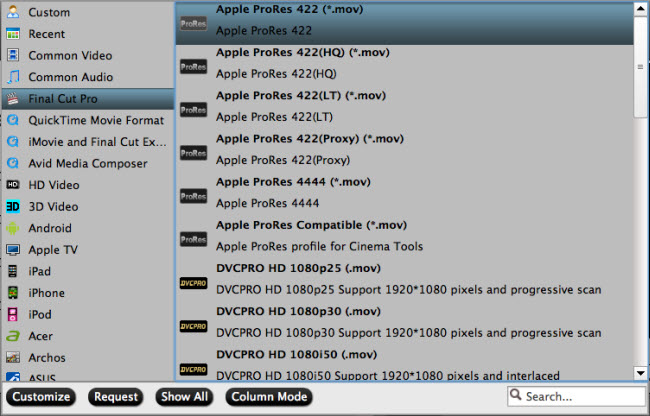
Step 3: Compress 4K to 1080p.
Click "Settings" on the main interface to open "Profile Settings" window, in video section, from "Size(pix)" drop-down list, choose "1980*1020" to compress 4K to 1080p.
Step 4: Start Xiaomi YI 4K to 1080p Conversion process.
Hit "Convert" button to begin Xiaomi Yi 4K to 1080p transcoding and compression process. When the conversion finished, check the generated 1080p video, then you get a smooth playing and editing experience with Xiaomi Yi 4K video on any devices or applications.
Related Articles
Any Product-related questions?support@pavtube.com


